- Home
- Lauren Blakely
The Virgin Game Plan Page 14
The Virgin Game Plan Read online
Page 14
“Try me,” I insist. “I want to know.”
He shakes his head. “Nope. Don’t want to be creepery.”
“C’mon,” I say, pouting. “Tell me something you remember.”
He’s adamant though, digging in his heels. “Nah. I’m going to err on the side of swoony by keeping it to myself.”
I frown. “What if I tell you something I remember?”
He stops, stroking his chin. “I’ll consider it then. The floor is yours.”
I lick my lips, cycling through so many moments, so many little details as I savor the view in front of me—the man I’ve most wanted to see again for the longest time. One particular memory flashes before me as I take him in. “I remember how your hair feels when I run my fingers through it.”
His darkened gaze hints of sex and desire, his voice going smoky, enticing. “How does it feel?”
I lift my free hand, lightly brushing the side of his head, stealing a touch of his hair. “Mmm. So good.”
His breath hisses, and he leans a little closer to my palm. “So this is swoony, not creepery?”
“Definitely swoony,” I whisper, then lift my mug and take a drink, the cup hiding my wild grin. After I take a sip, I say, “Now it’s your turn.”
He stares in the distance briefly, then returns to me. “If you want a sign that a man hasn’t forgotten a woman, I’d look for something bigger than remembering she likes macchiatos.”
Bigger.
Is he making a sex joke or something else? “Like what?”
“Like I told you. The fact that he hasn’t been with anyone else in two years,” he says, and it’s a mic-drop moment.
His words come out so strong.
My chest flutters.
It almost feels like he’s telling me more than he said the night at the Legion of Honor. As if there’s more at play than simply not meeting someone else.
I want to dive into the why, to ask more questions, but if I go down that hill, I’ll be tumbling straight into an avalanche of desire.
“Why did I think seeing you today would be easy?” I ask, a little breathy.
“It’s not easy. It’s not easy one bit. But it sure is fun, Reese,” he says, in a voice that makes me feel like we’re in a private cocoon. He clears his throat, straightening his shoulders. “But for the rest of the morning, I’m going to behave. I vow to behave.”
“Fine. If you’re going to behave, I’ll behave too,” I say, bumping my hip to his as proof.
Well, proof of something, but maybe not good behavior.
18
Reese
We both sip our drinks and then turn back into the building. Walking past the Imperial Tea Court, I slide into business. “I checked out some of your press clippings. And I know this is going to sound strange, but I think the problem is you’re almost too honest and too forthright.”
His brow furrows. “This reminds me of a job interview where they ask what your flaw is, and you give them a flaw that’s actually an asset, like ‘I’m too meticulous.’ Or ‘I pay too much attention to detail.’”
I arch a skeptical brow. “When have you ever had a traditional job interview?”
“Hey now. My parents made me practice in case this baseball thing didn’t work out.”
Laughing, I toss my head back. “Looks like ‘this baseball thing’ did work out. Which means now you have to talk to the press about baseball,” I say lightly, then turn serious, getting to the heart of the matter. “The trouble is, Holden, it’s not just that you don’t enjoy talking to the press. It’s clear from how you talk that you actively dislike them.”
“Ouch,” he says, and he winces too.
I pat his shoulder in sympathy—his very strong and muscular shoulder. “So I think we have to deal with whether it makes sense to be that straightforward. That honest.”
He stops in front of a bakery, leveling me with an intense stare. “I don’t want to be a liar, Reese. That’s not who I want to be.”
His green eyes are etched with strength, with certainty. This matters to him. The kind of person he is is important to him. That is so damn sexy.
“It’s a balancing act. You want to be yourself, but you want to present your best self,” I say.
He bristles. “I feel like honesty is part of my best self.”
“But it might not be the best approach with the media.”
He’s quick to answer with “That’s why I’ve been so focused on ‘No comment.’ Because I don’t want to pretend to be someone else. I don’t want to talk to the media then have it be twisted. And I don’t want to talk to them and spout platitudes that feel like lies.”
His concerns seem legitimate given what happened to him with that reporter. And I want him to know I understand where he’s coming from. “So, you want to present a better image to the press, but you also don’t want to feel like a liar?” I ask.
“Exactly. That’s not who I want to be,” he says with a new intensity, like he’s delivering an impassioned speech, as we resume our pace through the terminal. “I wasn’t raised that way by my parents. I was raised to be open and honest and forthright.”
“And those are all good things,” I reassure him, touching his shoulder again.
His gaze drifts down to my hand on him. “Are you going to keep doing that?”
“Should I stop?”
“No. Please don’t,” he says in a low voice. “But fair warning—that makes me want to do the same to you.”
“I wouldn’t object.”
He brushes a strand of hair off my shoulder, and sparks flame all over my skin. I’m this close to becoming a bonfire, so I return to safe ground. But ground that I enjoy traversing—the getting-to-know-you terrain.
“What are they like? Your parents?” I ask as we head outside, toward the railing by the bay, stopping there and wrapping our hands around it. I take a sip of my macchiato as he answers, pushing up the sleeve of his shirt, revealing his ink.
“They’re definitely honesty is the best policy kind of people. Another truism of theirs is If you tell the truth, you don’t have to keep track of a lie. More than anything, that’s why I struggle with the so-called Crash Davis School of Public Relations.”
That says a lot about him. It yanks the window wide open onto Holden Kingsley, and I like the view. A whole helluva lot. “You’re a lot like your parents.”
“I hope so. Hell, they’re why I have this tattoo,” he says, his gaze drifting down to the elegant tree on his forearm.
It’s a strong, sturdy tree, more stylized than realistic. “Tree for family,” I say, getting the meaning instantly.
“Exactly. I got it when I was drafted.”
“Right before you started in the minors? Why then?” I ask, curious to understand him even more. Every conversation reveals more of the onion of the man, as Tia put it.
“It was the next phase of my life. And I wanted to stay centered. To make sure I didn’t lose sight of my goals. It’s easy to be distracted by fame or riches. Though, to be fair, I had no idea if I’d have either,” he says with a laugh. “Or success, for that matter.”
“So you did this,” I say, tracing the trunk of the tree lightly with my free hand, “to stay focused.”
His green eyes swing to my fingers on his skin, then back up to me. “Yes. Have to keep my eye on the prize.” It comes out a little rough, a little gravelly.
There’s another layer to his words, as if they carry over to me. Like maybe I distract him from the prize—career, family, success.
Or perhaps I’m reading something into nothing. Perhaps I’m wishing to see something that isn’t there.
But still, knowing how close he is to them will help me keep my eye on the prize of helping him.
My brain cycles through various approaches for Holden with the press. But I’m not entirely sure yet, so I keep asking questions. “They sound like great people. You’re still close to them, aren’t you?”
A smile spreads across his handso
me face. “I am. We actually FaceTime and Zoom every weekend, and we talk a lot after my games. They watch nearly every one.”
My heart warms. “Do they give you feedback?”
“Not anymore. They just talk about what they enjoyed. When I was younger, my dad liked to give me a little bit of feedback, like ‘Take your time and have patience,’ and my mom did that too. Maybe even more so than my dad.”
I arch a brow. “Your mom? You don’t hear that often.”
His eyes shine with what’s clearly a fond memory. “My mom is a baseball fanatic. My parents actually met at a baseball game,” he says, lighting up as he reveals more of himself.
“Stop. That’s too adorable. Now you must tell me the whole story,” I insist with a demanding grin.
“You’re the one press person who can get me to talk about anything,” he says, shaking his head in amusement. In that low, smoky tone, he adds, “I think that’s your special skill.”
I inch a little closer. “Because I’m not trying to screw you over.”
He arches a brow, his green eyes glinting with dirty deeds. “Reese, be careful what you wish for.”
I swat his shoulder, even though I love his innuendo. “You’re naughty.”
He slides closer, his mouth near my ear, his breath sending a wave of heat along my skin. “If memory serves, you like that side of me.”
I shiver, then draw a shuddery breath. Being near him is dangerous. “If memory serves, I like all sides of you. Now, give me the side where you tell me about your parents.”
“If you insist, but first . . .” he says, then snaps a shot of a ferry lumbering into the dock. Another moody shot for his Instagram, I suspect.
When he lowers the phone, his lips curve up. He’s not flirty or fiery, just earnest, as he says, “Can I take a picture of you?”
I’m taken aback. “To post?”
He shakes his head. “No. For me. Just for me.”
My chest flips, and I say yes. I lean against the railing. “Smile or not?”
“Whatever works for you.”
He lifts the phone, and I do smile. Because I’m looking at him. Because this day is better than I imagined. Because this man makes me feel like the only woman in the whole damn city.
Hell, make that the hemisphere, given what he told me earlier.
When he lowers the phone and tucks it in his pocket, he sets a hand on my back. “Like I said, that’s just for me.”
Tingles. Everywhere.
We head back inside, walking past a chocolate shop. My eyes swing briefly to the displays at Lulu’s.
“Oh, does somebody like chocolate?” he asks, like he’s taunting me with treats.
“Just a little bit,” I say, holding up my thumb and forefinger a sliver apart.
“What’s your favorite kind?”
I gesture to the shop. “They have these little chocolate drops. They’re these tiny dimes of chocolate that melt on your tongue.” I point to the bag of chocolate drops as I moan the slightest bit, imagining how good they are.
“Hold my cortado,” he says, handing me his drink. He grabs a bag, heads to the register, and hands me the chocolate upon his return.
“Should I just pop the chocolate in my mouth and think about you?” I ask, dropping the gift into my purse, then slinging my purse back up on my shoulder.
“Does the chocolate taste good?” he asks, gravelly again.
That rumble spreads down my chest, causing my pulse to surge.
“It does,” I say, trying not to sound desperately breathy.
But failing. Utterly failing.
“Then yes, please think about me.”
I blink, the temperature in me soaring well above one hundred degrees. I flap my hand in front of my face, needing to cool off. “Okay. Can we go back to your parents so I’m not thinking about how good the chocolate is going to taste and how much I’m melting from all the things you’re saying to me?”
“You’re melting?” he asks, clearly loving that I am.
I stare at him. Intensely. “Holden, you make me melt. And you know that.”
“I better change the topic, then. For both our sakes.”
“Yes, please.” I laugh, then whisper, “I think.”
He laughs too. “Just to be safe.” He clears his throat. “So, my parents met at a Seattle Storm Chasers game many, many years ago. She was in the stands, yelling at the umpire. He was yelling at the opposing team. The rest is history.”
“That is awesome. A perfect ‘how they met’ story for baseball parents. What about your brothers? Do they play baseball at all?”
He shakes his head. “Neither one of them is into the game.”
“Do your parents love that you play?”
“They do. But the thing is, they’re just as proud of my brothers for their abilities. For their interests in architecture and engineering. They didn’t treat me like I was a favorite or anything just because I played the sport they loved.”
My smile grows wider. “My mom was like that. She’s a nurse, as I told you, and my sister always wanted to go into medicine. I was more of the sporty, outgoing one. But my mom encouraged and supported both of us, and I never felt like my sister was more important because her profession was more closely aligned with my mother’s,” I say, successfully avoiding the topic of my father. I don’t want to talk about his influence on my life. I’m keenly aware that Holden has spent more time with him in the last three days than I have in three years. But sports were always mine. And my mom supported me in them just as much as my father did.
“We’re lucky in some ways,” Holden says, and I love, too, that he hasn’t said a word about my dad either.
We have so much else we can talk about.
We chat more about his family, and I share more about my mom and sister and grandparents.
We finish our drinks, return the mugs to the coffee shop, and head outside, staring at the water as the waves go out choppily and a ferry glides in, its horn bleating as it nears the dock.
My ideas for him take shape. “I have a plan for you. An approach that I think might help.”
He waggles his fingers, beckoning me to serve it up. “Hit me up, Reese.”
I take a deep breath. “It’s all a matter of how you frame your answers and how you approach talking to the media.”
Considering what he just shared about himself, I’m convinced this strategy will help him.
“Keep going.”
“Think of it like this—what part of yourself are you giving to the press?” I gesture to him, my hand dangerously near his chest. That broad, firm chest that I love running my hands up and down. “Here’s this man, Holden Kingsley, and he’s a lot of things, right?”
“That’s the goal.”
“You’re a great athlete. You’re a good teammate. You’re focused and disciplined. You’re a good friend. You’re an upstanding guy,” I say, as I list his attributes.
His lips curve into a delicious smile, almost an embarrassed one.
“And you’re also a guy who doesn’t want to see yourself as lying to the press.”
“All of that is true.”
“So, what you need to do is reframe how you think about it. Don’t think of it as lying when you give them an answer about how you’re nobody’s savior. That’s true, and believing that helps you remember winning isn’t about one man. So rather than say, ‘I’m nobody’s savior,’ reframe your response as ‘I just want to help the team.’”
He nods, like he’s absorbing this. “Sure. Makes sense.”
“And when you answer their questions, remember you’re only giving a piece of you. You’re giving one truthful portion of yourself. You don’t have to show them all your cards. Even if you’re saying things that might feel empty to you, you’re still speaking your truth. Because it’s true that you want what’s best for the team,” I say, never wavering, because I believe this. I truly believe we can and maybe even need to only share parts of ourselves. I don’t serve u
p my family story to everyone I meet. I’m still honest with Holden even if I don’t tell him how I feel about his manager, so I lean on that philosophy now. “It is true that every game is a good game in its own way. It is true that you play your heart out, and you leave it on the field, and you respect your opponents, right?”
He nods vigorously, his green eyes intense, honest. “Absolutely. I completely do.”
“You don’t have to cringe and feel like you’re lying. Because those are honest answers. You can’t control if someone lies or makes up facts. You have to let that go. But you can control what you show them. You can let them only see the part of you that truly does want to help the team. Give them the part of you that believes you take each game as it comes. Because you do believe that, right?”
“Absolutely. I have a plan for every game. Every day.” He grins and gestures with his arms wide as he shares his routine. “I do my four-mile run every morning. Work out. Play my brain games—word searches and word jumbles,” he says, and that is, yet again, adorable. Holden and his word games.
A grin tugs at my lips as I soldier on. “Then talk about your plan for each game. How you approach each opponent. And when they ask you a question, like ‘How do you feel about your chances this season?’ you say something along the lines of ‘I’ve got a plan for every game, and I’m just grateful to get on the field and see if it’ll play out.’”
He nods as if he digs this idea. “You’re right. They don’t get to have every part of me. But I also don’t have to lie.”
“Yes. Most people don’t deserve all parts of us. Most people only get a small part of you.”
“Woman, you’re brilliant.”
We spend the next hour reviewing questions and answers.
It’s all going so incredibly well that I think maybe we can do this.
Maybe we can be friends.
I love talking to Holden.
I love his honesty. I love his earnestness.
I don’t want him out of my life.
When the hour winds down and he glances at his watch, my heart lurches.
Disappointment washes over me that this slice of time has unspooled.

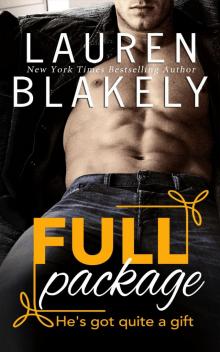 Full Package
Full Package Winning With Him
Winning With Him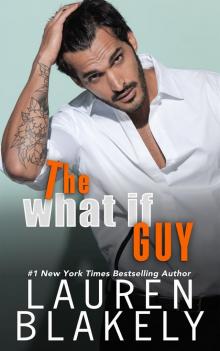 The What If Guy
The What If Guy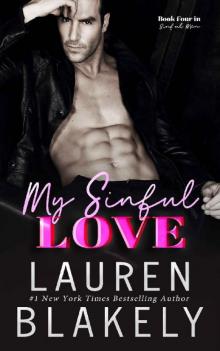 My Sinful Love (Sinful Men Book 4)
My Sinful Love (Sinful Men Book 4)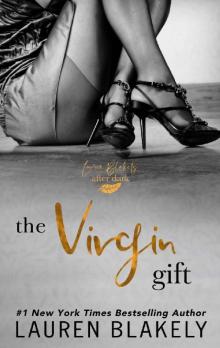 The Virgin Gift
The Virgin Gift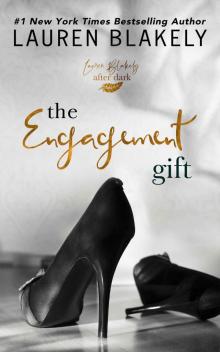 The Engagement Gift
The Engagement Gift The Break-Up Album
The Break-Up Album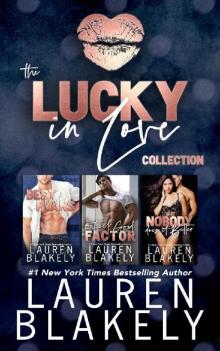 The Lucky in Love Collection
The Lucky in Love Collection Delayed Gratification
Delayed Gratification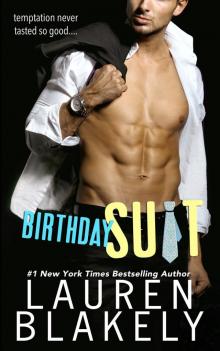 Birthday Suit
Birthday Suit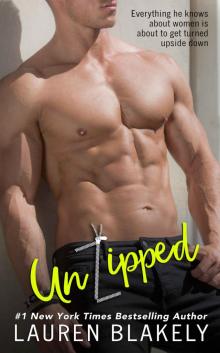 Unzipped
Unzipped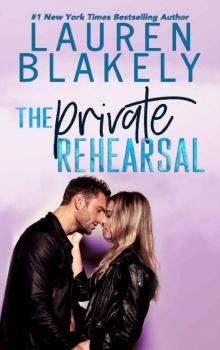 The Private Rehearsal (Caught Up In Love: The Swoony New Reboot of the Contemporary Romance Series Book 4)
The Private Rehearsal (Caught Up In Love: The Swoony New Reboot of the Contemporary Romance Series Book 4)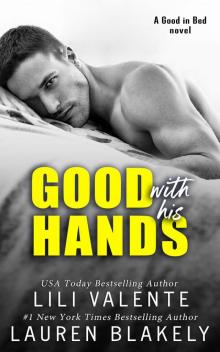 Good With His Hands
Good With His Hands Special Delivery (Always Satisfied Book 5)
Special Delivery (Always Satisfied Book 5)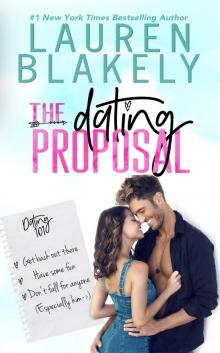 The Dating Proposal
The Dating Proposal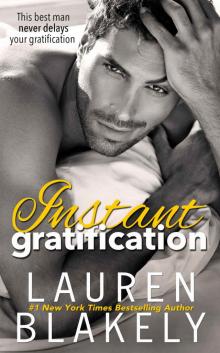 Instant Gratification (Always Satisfied Book 2)
Instant Gratification (Always Satisfied Book 2)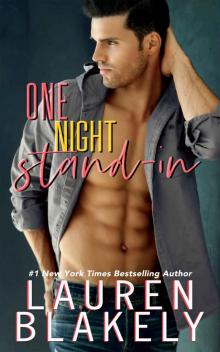 One Night Stand-In (Boyfriend Material Book 3)
One Night Stand-In (Boyfriend Material Book 3)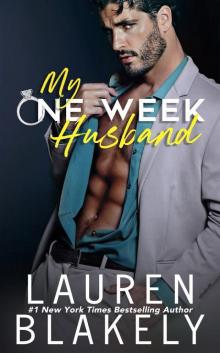 My One Week Husband
My One Week Husband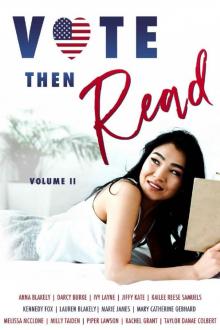 Vote Then Read: Volume II
Vote Then Read: Volume II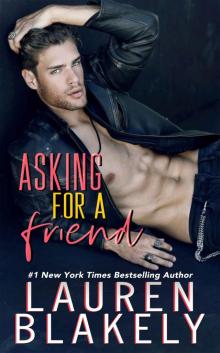 Asking For a Friend (Boyfriend Material Book 1)
Asking For a Friend (Boyfriend Material Book 1)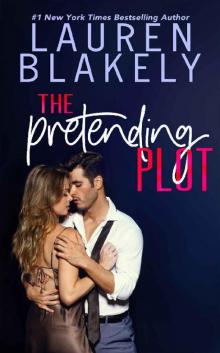 The Pretending Plot (Caught Up In Love: The Swoony New Reboot of the Contemporary Romance Series Book 1)
The Pretending Plot (Caught Up In Love: The Swoony New Reboot of the Contemporary Romance Series Book 1)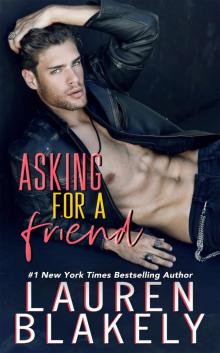 Asking For a Friend
Asking For a Friend Delayed Gratification: (Always Satisfied Book 2.5)
Delayed Gratification: (Always Satisfied Book 2.5)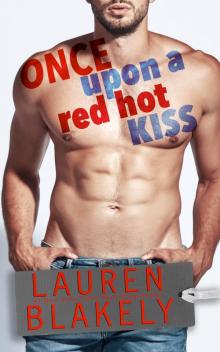 Once Upon A Red Hot Kiss
Once Upon A Red Hot Kiss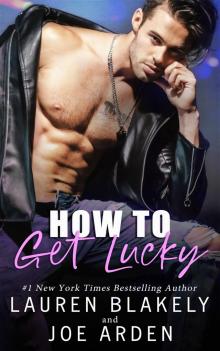 How to Get Lucky
How to Get Lucky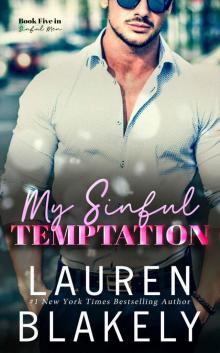 My Sinful Temptation (Sinful Men Book 5)
My Sinful Temptation (Sinful Men Book 5)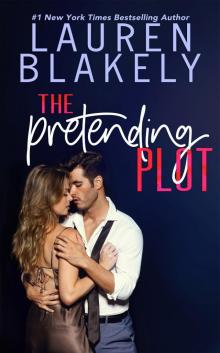 The Pretending Plot
The Pretending Plot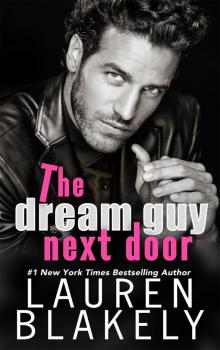 The Dream Guy Next Door: A Guys Who Got Away Novel
The Dream Guy Next Door: A Guys Who Got Away Novel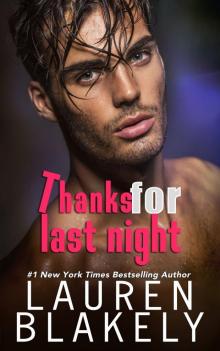 Thanks For Last Night: A Guys Who Got Away Novel
Thanks For Last Night: A Guys Who Got Away Novel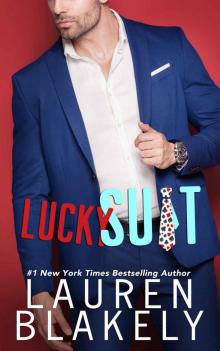 Lucky Suit (Sexy Suits Book 1)
Lucky Suit (Sexy Suits Book 1)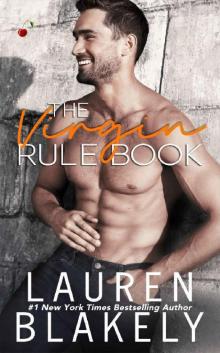 The Virgin Rule Book (Rules of Love 1)
The Virgin Rule Book (Rules of Love 1)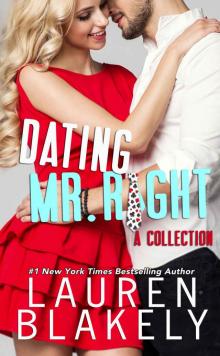 Dating Mr. Right: A Collection: Four Standalone Romantic Comedies
Dating Mr. Right: A Collection: Four Standalone Romantic Comedies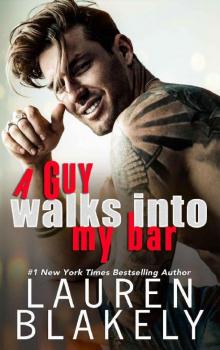 A Guy Walks Into My Bar
A Guy Walks Into My Bar PS It's Always Been You
PS It's Always Been You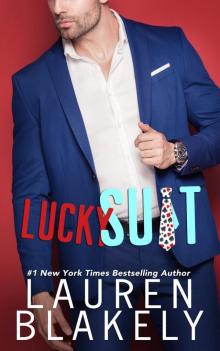 Lucky Suit
Lucky Suit One Night Only: An After Dark Standalone in The Extravagant Series
One Night Only: An After Dark Standalone in The Extravagant Series Best Laid Plans
Best Laid Plans The One Love Collection
The One Love Collection Dear Sexy Ex-Boyfriend (The Guys Who Got Away Book 1)
Dear Sexy Ex-Boyfriend (The Guys Who Got Away Book 1) Scoring With Him
Scoring With Him The Second Chance Plan (Caught Up In Love: The Swoony New Reboot of the Contemporary Romance Series Book 3)
The Second Chance Plan (Caught Up In Love: The Swoony New Reboot of the Contemporary Romance Series Book 3) Dear Sexy Ex-Boyfriend
Dear Sexy Ex-Boyfriend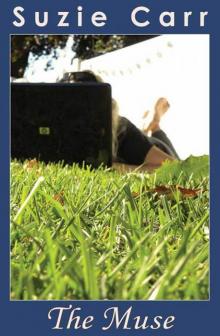 The Muse
The Muse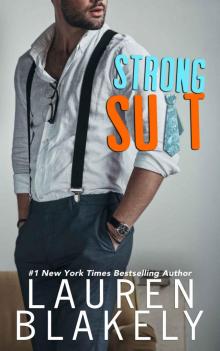 Strong Suit
Strong Suit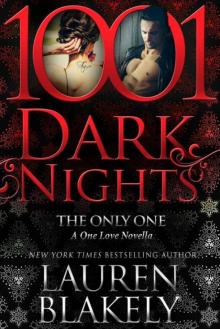 The Only One
The Only One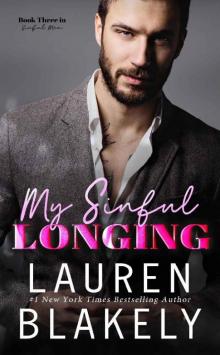 My Sinful Longing (Sinful Men Book 3)
My Sinful Longing (Sinful Men Book 3) The Rules of Friends with Benefits
The Rules of Friends with Benefits The Virgin Game Plan
The Virgin Game Plan P.S. It’s Always Been You: A Second Chance Romance
P.S. It’s Always Been You: A Second Chance Romance The Second Chance Plan
The Second Chance Plan Satisfaction Guaranteed: A Standalone Romance (Always Satisfied Book 1)
Satisfaction Guaranteed: A Standalone Romance (Always Satisfied Book 1)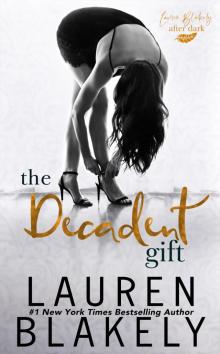 The Decadent Gift
The Decadent Gift A Wild Card Kiss
A Wild Card Kiss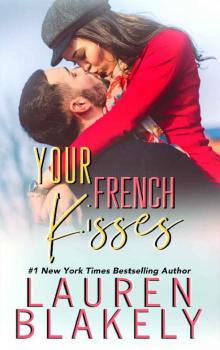 Your French Kisses (Boyfriend Material Book 4)
Your French Kisses (Boyfriend Material Book 4)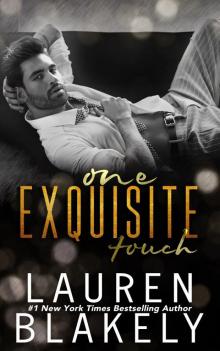 One Exquisite Touch: Book One in The Extravagant Series
One Exquisite Touch: Book One in The Extravagant Series Joy Ride
Joy Ride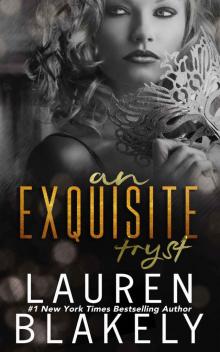 An Extravagant Tryst: A Prologue (The Extravagant)
An Extravagant Tryst: A Prologue (The Extravagant) My Charming Rival
My Charming Rival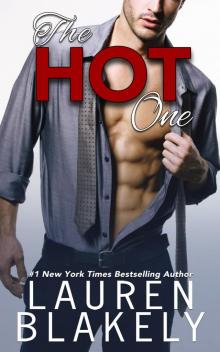 The Hot One
The Hot One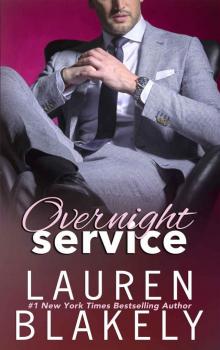 Overnight Service (Always Satisfied Book 4)
Overnight Service (Always Satisfied Book 4)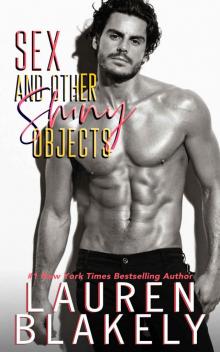 Sex and Other Shiny Objects (Boyfriend Material Book 2)
Sex and Other Shiny Objects (Boyfriend Material Book 2) The Seductive Nights Novellas
The Seductive Nights Novellas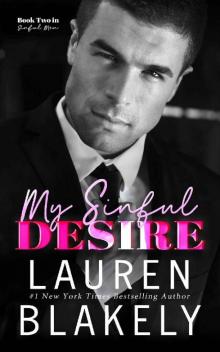 My Sinful Desire (Sinful Men Book 2)
My Sinful Desire (Sinful Men Book 2) A Wildly Seductive Night: (Seductive Nights: Julia & Clay Book 3.5)
A Wildly Seductive Night: (Seductive Nights: Julia & Clay Book 3.5) Playing With Her Heart
Playing With Her Heart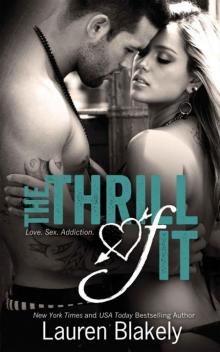 The Thrill of It
The Thrill of It Julia and Clay Plus One
Julia and Clay Plus One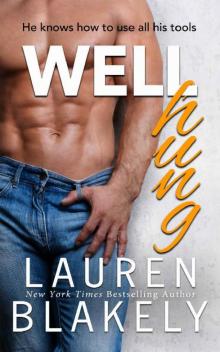 Well Hung
Well Hung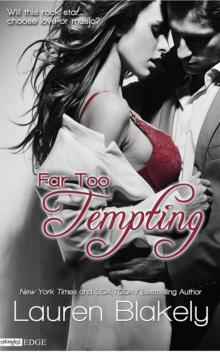 Far Too Tempting
Far Too Tempting Wanderlust
Wanderlust Burn for Me
Burn for Me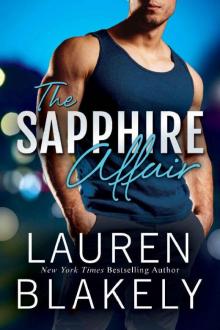 The Sapphire Affair (A Jewel Novel Book 1)
The Sapphire Affair (A Jewel Novel Book 1)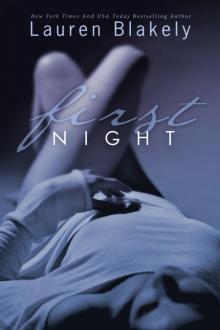 First Night
First Night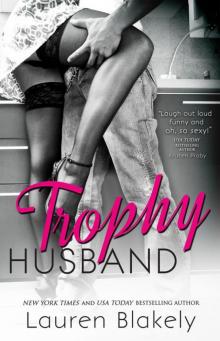 Trophy Husband
Trophy Husband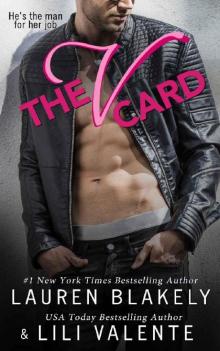 The V Card
The V Card Out of Bounds
Out of Bounds The Thrill of It (No Regrets Book 2)
The Thrill of It (No Regrets Book 2)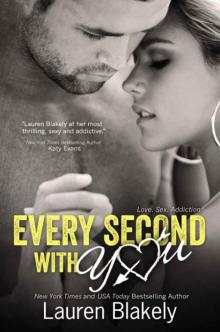 Every Second With You
Every Second With You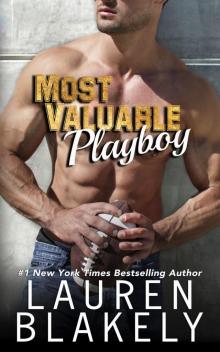 Most Valuable Playboy
Most Valuable Playboy Once Upon A Wild Fling
Once Upon A Wild Fling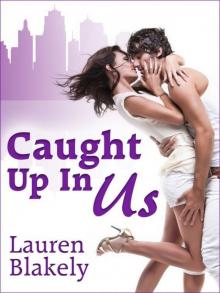 Caught Up In Us
Caught Up In Us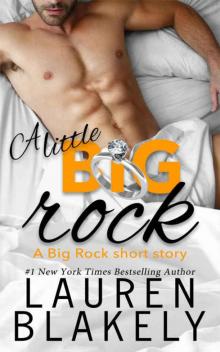 A Little Big Rock (Big Rock #0.5)
A Little Big Rock (Big Rock #0.5) An Extravagant Tryst
An Extravagant Tryst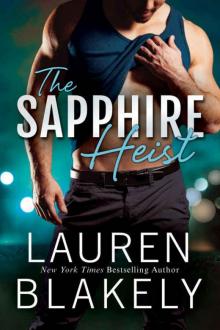 The Sapphire Heist (A Jewel Novel Book 2)
The Sapphire Heist (A Jewel Novel Book 2)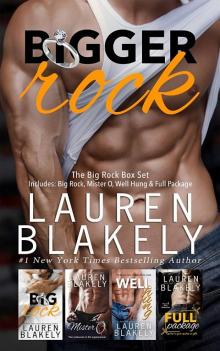 Bigger Rock
Bigger Rock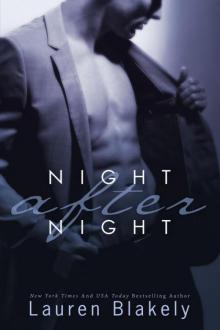 Night After Night
Night After Night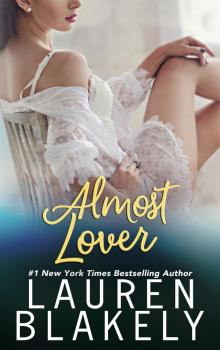 Almost Lover
Almost Lover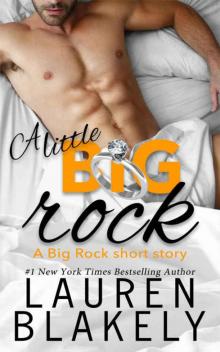 A Little Big Rock
A Little Big Rock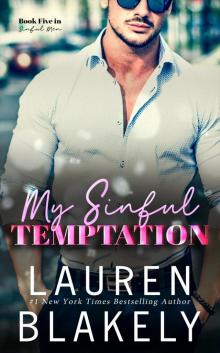 My Sinful Temptation
My Sinful Temptation The Sexy One
The Sexy One Sweet Sinful Nights
Sweet Sinful Nights Sinful Longing
Sinful Longing Sinful Love (Sinful Nights #4)
Sinful Love (Sinful Nights #4)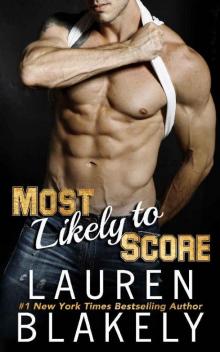 Most Likely To Score
Most Likely To Score Caught Up In Him
Caught Up In Him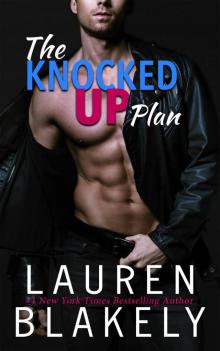 The Knocked Up Plan
The Knocked Up Plan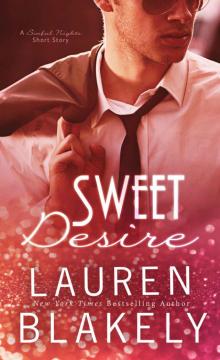 Sweet Desire: (A Sinful Nights Short Story)
Sweet Desire: (A Sinful Nights Short Story)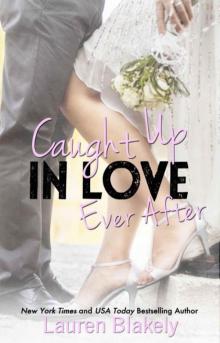 Caught Up in Love Ever After
Caught Up in Love Ever After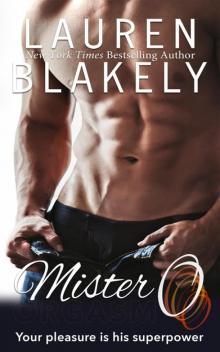 Mister O
Mister O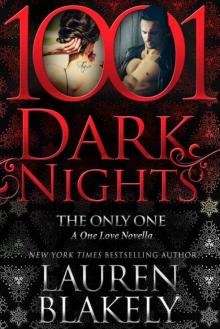 The Only One: A One Love Novella
The Only One: A One Love Novella Pretending He's Mine
Pretending He's Mine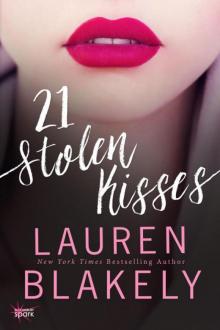 21 Stolen Kisses
21 Stolen Kisses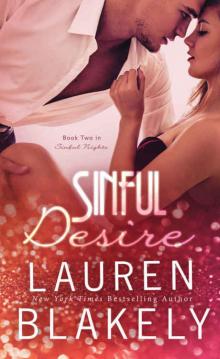 Sinful Desire
Sinful Desire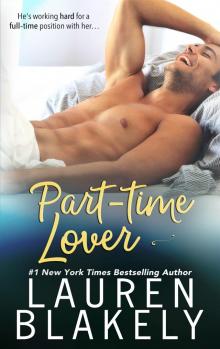 Part-Time Lover
Part-Time Lover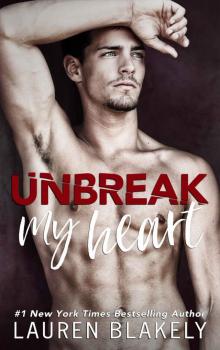 Unbreak My Heart
Unbreak My Heart Forbidden Nights
Forbidden Nights Come As You Are
Come As You Are Consumed By You
Consumed By You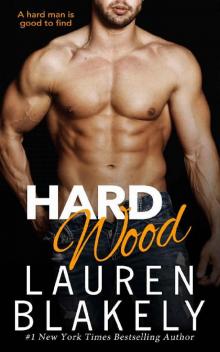 Hard Wood
Hard Wood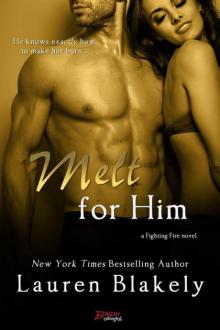 Melt For Him
Melt For Him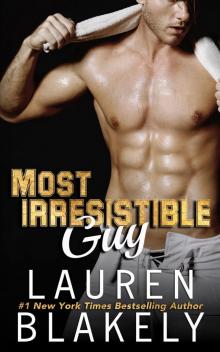 Most Irresistible Guy
Most Irresistible Guy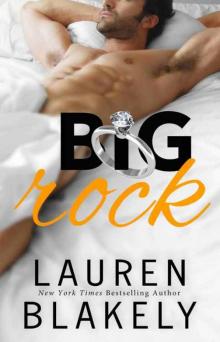 Big Rock
Big Rock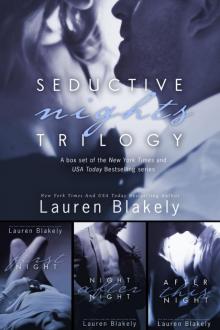 Seductive Nights Trilogy
Seductive Nights Trilogy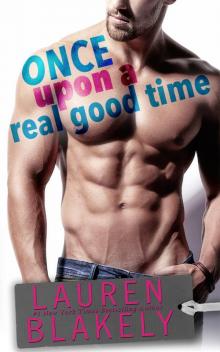 Once Upon a Real Good Time
Once Upon a Real Good Time Ace, Whiskey and a Hot Tub
Ace, Whiskey and a Hot Tub Stud Finder (1001 Dark Nights)
Stud Finder (1001 Dark Nights)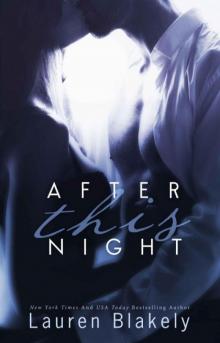 After This Night
After This Night